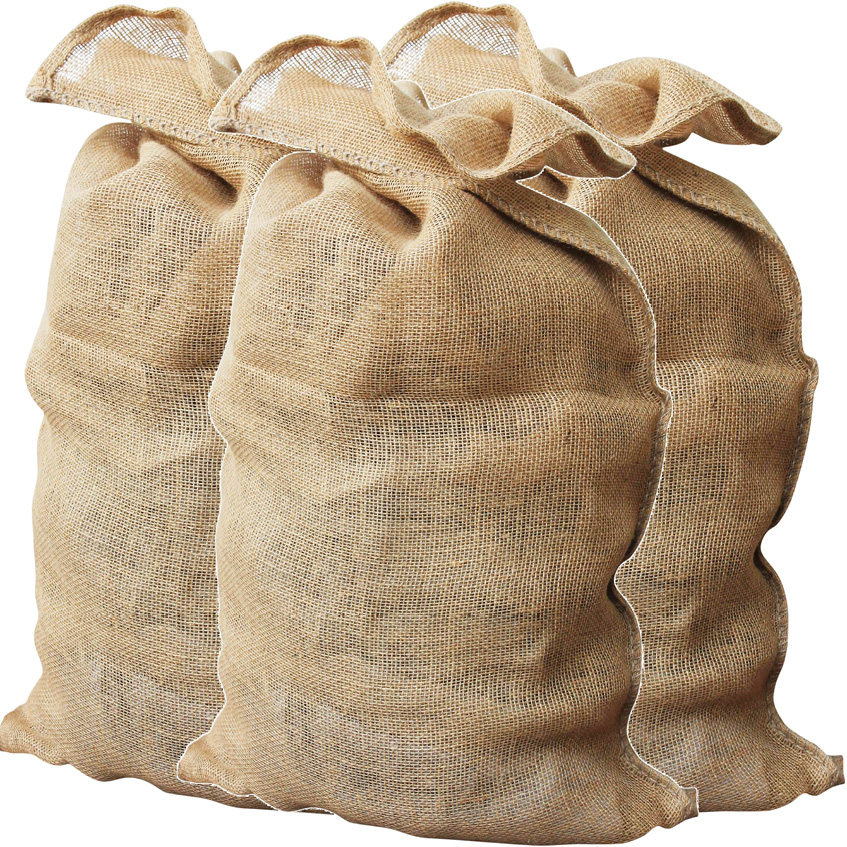The Federal Government of Nigeria has said the country will soon resume the production of jute sacks for packaging agro commodities for both domestic and international use.
Already, government said it was spending about N2.78 billion in foreign exchange annually to import jute sacks for packaging agro commodities.
- Senator hails RMRDC feats in raw materials processing
- Drug for tuberculosis cure underway — RMRDC DG
The director-general of the Raw Materials Research Development Council (RMRDC), Professor Ibrahim D. Hussaini, who disclosed this in Abuja, said with the collapse of the first national initiative on jute sack production in Jos and Badagry by the Nigeria Fibre Company (NIFINCO) and the Nigeria Fibre Production Limited (NNFPL) around 1971 and the increase in jute sacks requirement from two million to five million pieces, it is imperative that efforts be made to revisit the production of jute sacks in Nigeria.
According to him, the situation is becoming very pathetic as a number of commodity exporters have resorted to importing second-hand jute sacks from Ghana.
This, he said, had contributed to a further rejection of many agricultural produce being exported from Nigeria.
- Farmers asked to grow kenaf
Jute and kenaf bags are mainly produced from kenaf crop fibres, and Professor Hussaini believes that farmers would rake in more money by growing the crop when local production of jute bags begins.
He said the development of kenaf bio-economy in Nigeria was highly plausible and very attractive as Nigeria had over one million hectares of land suitable for the cultivation of kenaf in about 18 states of the federation.
He listed the states to include Adamawa, Bauchi, Gombe, Taraba, Plateau, Kwara, Kaduna, Benue, Kogi, Niger, Nasarawa, Lagos, Ogun, Osun, Oyo, Ekiti and the Federal Capital Territory (FCT).
To promote kenaf bio-economy in Nigeria, he said the first initiative of the Council was to boost its availability by promoting its production.
“In collaboration with stakeholders, most especially the Institute of Agricultural Research and Training, (IAR&T), Ibadan, the Council promoted kenaf variety development, improvement and domestication of imported Cuba 108, Cuba 2032, Everglades 71, Guatemala 3F.
This was followed by multi-locational-field trials of the imported improved kenaf seeds in the South-West geo-political zone, during which only Cuba 108 was found to be most adaptable to the local environment and cultural agronomic practices,’’ he said.
According to him, it is in view of the importance of ensuring sustainable availability of planting materials that the Council, also in January 2020, distributed about 2.5 tonnes of improved seeds to farmers for further multiplication.
“Through this programme, the Council has been able to establish the productivity and profitability of kenaf under farmers` condition.
“We have provided the framework for commercial production of kenaf in Nigeria and stimulated the interest of farmers to engage in large scale production of the crop.
“Through these efforts, there are now improved kenaf seeds for farmers across the country,’’ he added.
He said the IAR&T had developed several varieties of kenaf, which include Cuba 108, Ifekan 400, Ex Funtua, Tianung 1, G45, Ex Giwa, and AU 64.
He added that the technology for the design and fabrication of kenaf decorticating machine is now available locally.
- FG invites investors
While promoting kenaf production locally, the RMRDC, in collaboration with stakeholders, organised investors’ fora on kenaf development and utilisation in all the six zones of Nigeria.
The primary aim of the fora was to promote investments in processing kenaf into yarn and the establishment of jute sack production plant in Nigeria.
This has become imperative in view of the global best practices for agricultural commodities packaging, transportation and export.
The director-general of the Council said after the closure of the NIFINCO and NNFPL, investors in Nigeria had not given adequate consideration to jute sack production despite the enormous market that exists in Nigeria and other West African countries.
What most investors may not know, according to him, is that yarn production is not a very complex procedure and that the equipment is readily available in India, China and Indonesia.
He said investment in yarn production was more critical now as the only jute bag factory that was established in Kaduna, the MURADA Ventures Nigeria Limited, closed operations recently as a result of lack of adequate foreign exchange to import yarn.
Before the company closed operations about a year ago, it reduced importation of jute bags into Nigeria by about 50 per cent.
He assured investors that the Council, in collaboration with some mandated financial institutions, had produced a blueprint for the production of jute bags from kenaf.
This will be made available to any investor that may be interested in local production of kenaf sacks.

 Join Daily Trust WhatsApp Community For Quick Access To News and Happenings Around You.
Join Daily Trust WhatsApp Community For Quick Access To News and Happenings Around You.


